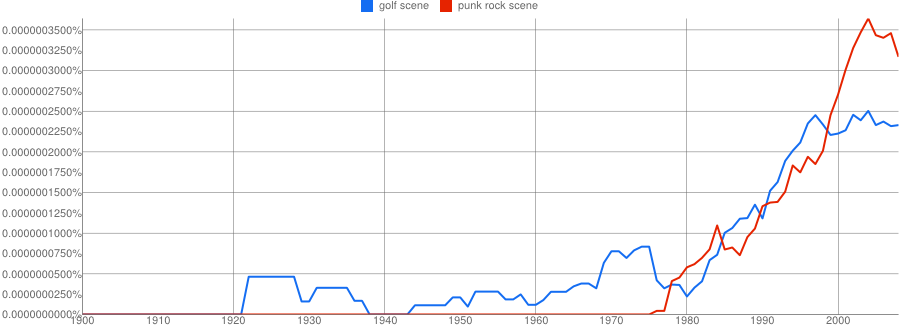In German, the word 'Szene', which translates literally to 'scene' and has an identical meaning in the context of a movie or a play, has a second use in referring to a group of people that form a community around a common interest with a high identification factor, in particular music genres.
In English, I've come across "drug scene", or "clubbing scene", which seems to match the German usage, but more often it seems to be "community", which appears to have a slightly larger scope, though. While a "community" can have many purposes, and particularly may well be of a professional nature (as in "programmer community"), a "Szene" would almost always be related to leisure activities, with a slight bias towards nightlife.
A good example for that is the German word "Schwulenszene", which would probably translate to "gay community", but the two terms don't match exactly. The German one would tend to not include gay rights activists, for instance, and mostly refer to bars, clubs or parties that are directed specifically at the gay community.
The German word is mostly neutral (in 2012 Berlin, anyway), has a slightly positive connotation of something fashionable in nightlife (the expression "Szenekneipe" might be used like the English "hip joint"), but shifts to clearly derogatory when used for political groups, usually of the more extreme sort ('Naziszene', 'Autonomenszene', 'Islamistenszene'). I'm hypothesizing, but it might be that it started out as a derogatory term and got its connotation transformed by some of the hipper crowds thusly described.
Some contexts where it would be natural in German to use "Szene", but where I haven't heard the English expression yet:
- ballroom dancing (Tango, Salsa etc)
- music genres with associated looks / lifestyles (Metal, Punk, Gothic etc.)
- pastimes that form strong communities, like LARPing or various outdoor sports

